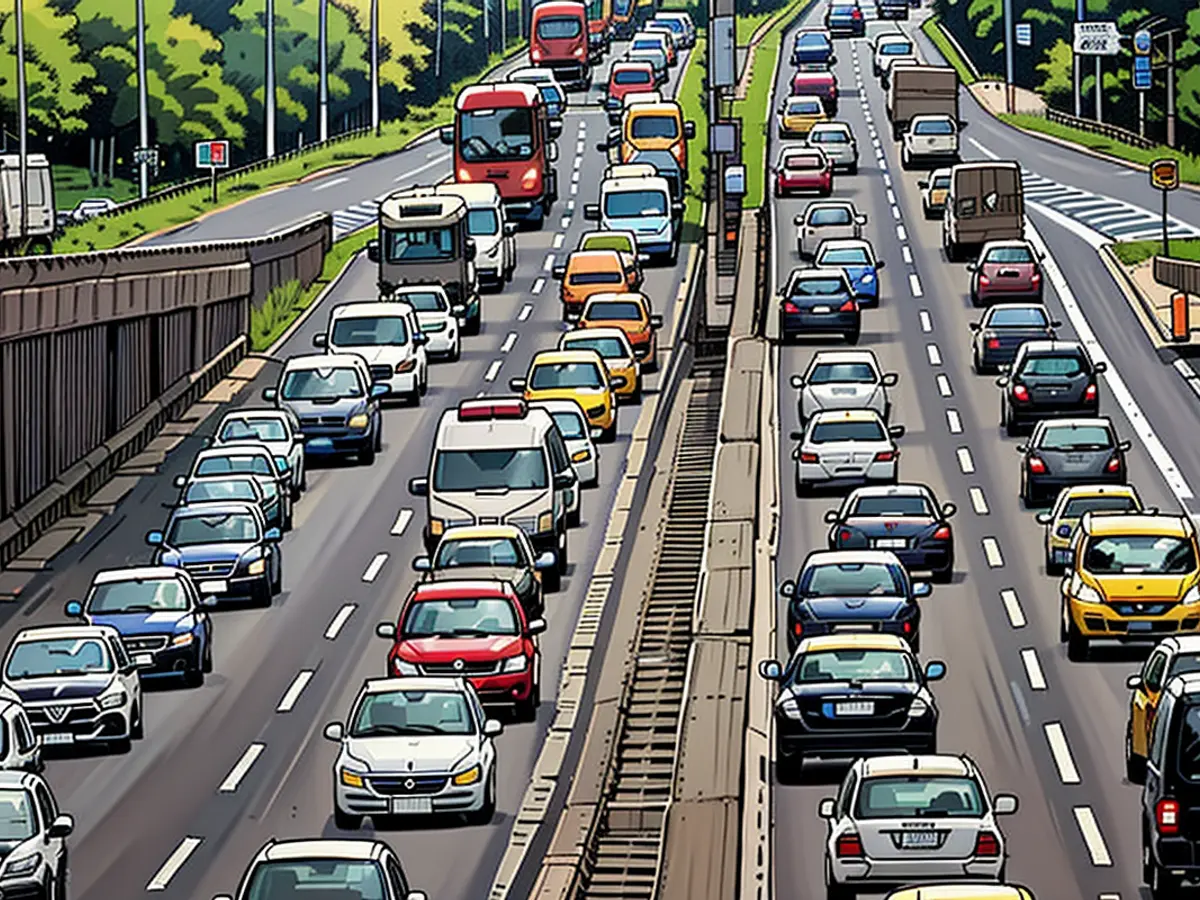Gridlocks see billions siphoned away annually.
In major German cities, such as Berlin, commuters endure substantial hours annually trapped in traffic congestion. A study indicates that these prolonged halts lead to significant financial loss. Yet, some strategies are proposed to enhance the situation, with Paris serving as a prime example.
On average, a German commuter spends 40 hours annually stuck in traffic, according to Inrix, a traffic data provider. This time lost equates to almost half an hourly wage on average, totaling around €427 per driver. Inrix further reports that these traffic jams cost German drivers a total of €3.2 billion, representings a 14% increase compared to 2022. Additionally, there are considerable extra fuel expenses encountered during stop-and-go traffic.
Berlin ranks highest among German cities stuck in traffic, as per traffic analysts, with commuters spending an average of 55 hours last year in congestion. Close behind are Stuttgart (53 hours) and Munich (52 hours). In Cologne, commuters endured 50 hours, while Düsseldorf took 49 hours, and Bremen and the Ruhr area both clocked in at 45 hours.
Hamburg, however, fared relatively well with 43 hours stuck in traffic, though this still amounts to over a week's worth of time for the daily commute. Inrix determined these time losses by comparing the lengths of nighttime trips on uncongested roads with trips during business hours.
Interestingly, trips into city centers have reduced substantially in metropolises like Berlin, Hamburg, Munich, Cologne, and Frankfurt am Main, by 17% in Berlin and 16% in Munich compared to the previous year. Simultaneously, however, delays due to traffic jams or congestion have risen. This trend suggests a gradual move away from city centers and a shift in traffic towards the outskirts, traffic analysts suggest.
Rush Hour Commuter Traffic
Commuter traffic has surged during the mornings. The A8 in Stuttgart-Ehningen was the prominent traffic congestion hotspot last year, joined by the Middle Ring in Munich and the Elbtunnel in Hamburg as other congestion focal points.
Overall, traffic increased again globally in 2023. Paris, with its focus on promoting bike usage in city centers, is often referenced as a successful model for managing growing city center traffic. Additionally, other methods, such as the Germanyticket and the City Congestion Charge Program in London, are being closely observed for their effectiveness. In Germany, local trains, trams, and buses are expected to be used significantly more in comparison to 2022.
Read also:
Despite the decrease in city center trips, traffic delays have significantly increased in major German cities. This is leading to an increase in fuel expenses and loss of employee time, as employees often get stuck in traffic jams. According to Inrix, a German commuter spends an average of 40 hours annually stuck in traffic, equating to a financial loss of around €427 per driver.








